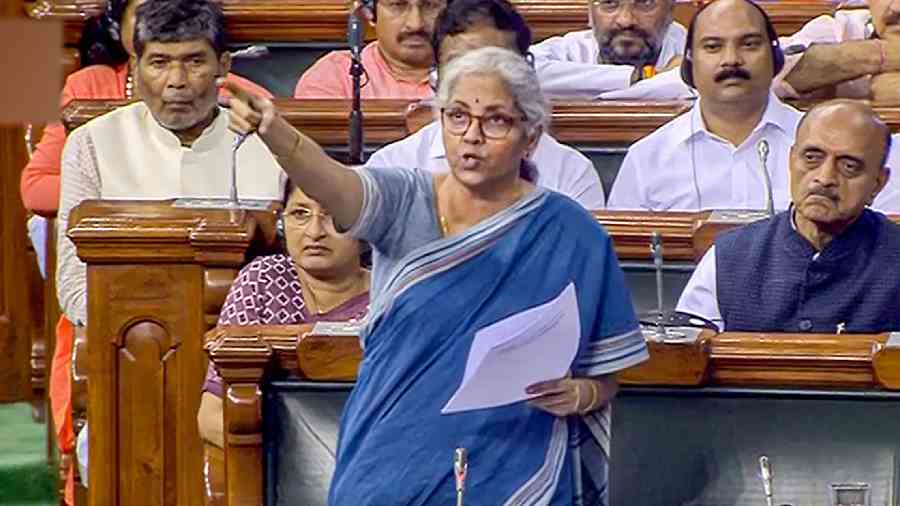The wholesale price-based inflation fell to a 21-month low of 5.85 per cent in November as prices of food, fuel and manufactured items softened.
The WPI (wholesale price index) based inflation has been on a declining trend since May and came down to single digit in October at 8.39 per cent.
Experts said a high base of last year and some easing in food prices also worked in favour of the November 2022 wholesale price index coming in at its lowest level since February 2021 when it was 4.83 per cent.
"Decline in the rate of inflation in November 2022 is primarily contributed by fall in prices of food articles, basic metals, textiles, chemicals & chemical products and paper & paper products as compared to the corresponding month of the previous year," the commerce and industry ministry said on Wednesday.
Finance minister Nirmala Sitharaman told Parliament that the government will work for the common man to further bring down inflation.
"Inflation management or control... Prime Minister Modi and his group of ministers and officers are taking periodic interventions and measures as a result of which we find the results coming in," Sitharaman said while replying to supplementary demands for grants for 2022-23 fiscal in the Lok Sabha.
Inflation in food articles in November was 1.07 per cent against 8.33 per cent in the previous month.
Inflation in vegetables was (-)20.08 per cent during the month compared to 17.61 per cent in October.
Bank of Baroda in a research note said WPI inflation continued to moderate in November with the base effect working in favour of lower numbers.
Within food, prices of fruits, vegetables, especially tomato and potato, dragged down the prices. However, there is an uptick in prices of wheat, pulses and milk products.
"With Russian federation re-joining the Black Sea Grain initiative, wheat prices are expected to see some volatility in the coming months. Core WPI softened to two-year low of 3.5 per cent in November. Going ahead, we expect further easing in WPI inflation," Bank of Baroda said in a note.
As per WPI data, in the 'fuel and power' basket, inflation was 17.35 per cent, while in manufactured products, it was 3.59 per cent in November.
The Reserve Bank takes into account retail inflation for formulating monetary policy. Data released earlier this week showed retail inflation dipped below the RBI's upper tolerance level of 6 per cent for the first time in 11 months in November on softening food price index.
Though the consumer price index (CPI) based retail inflation declined to 5.88 per cent in November, experts still expect the RBI to hike interest rates by another 25 basis points in its February monetary policy review.
The Reserve Bank had last week said the worst of inflation is behind us, but there is no room for complacency and hiked the benchmark policy rate by 35 basis points to 6.25 per cent.
The central bank also said it will keep 'Arjuna's eye' (keen focus) on the evolving inflation dynamics and projected inflation to remain above 4 per cent for the next 12 months.
The RBI keeps a close watch on CPI inflation, which we expect to remain above 6 per cent in December, Bank of Baroda said in a note.











